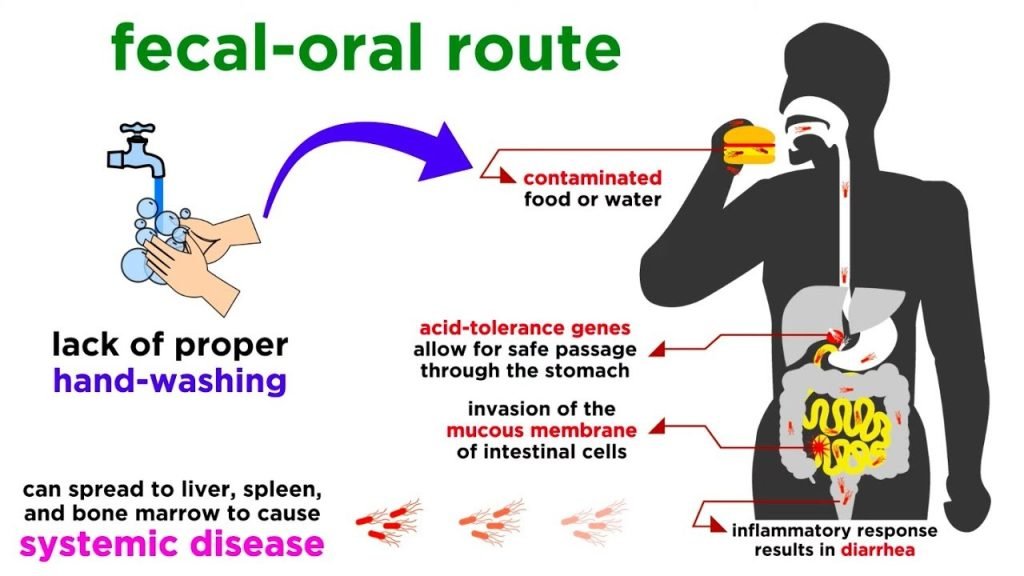CONDITIONS
Typhoid
Typhoid (Typhoid fever)
What are the symptoms of Typhoid?
Symptoms are generally seen 1 to 3 weeks after exposure to the bacteria and are generally as follows:
- Loss of hunger (Poor appetite)
- Headaches
- Body aches and pains
- High Fever (as high as 104 degrees Fahrenheit)
- Feeling lazy and dull (lethargy)
- Diarrhea
- Extreme tiredness
- “Rose spots” rash, or faint pink spots, usually on your chest or stomach.
Chest congestion, abdominal pain and discomfort may be commonly seen. Fever is a constant improvement occurring in the third and fourth week. Relapses are commonly seen with about 10% of people having recurrent symptoms after feeling better for one to two weeks.
What are the causes of Typhoid?

What are the risk factors of Typhoid?
- Work in or travel to areas with typhoid fever
- Work as a clinical microbiologist handling Salmonella enterica serotype typhi bacteria.
How is Typhoid diagnosed?
The health care provider suspecting typhoid fever based on the symptoms may ask for the medical and travel history. Further diagnosis is confirmed by following tests:
Body fluid or tissue culture – A culture test is the most common diagnostic test using the sample of blood, stool, urine or bone marrow. These are placed in an environment for easy bacteria growth and is then checked for the typhoid bacteria. Bone marrow culture is often the most sensitive test for Salmonella typhi.
How is Typhoid treated?
Typhoid is treated with antibiotics. These depend on the type of bacteria that the person is infected with as some newer types are resistant (XDR typhoid) to certain antibiotics. The doctor advises and suggests on the type of antibiotics. Paratyphoid fever, a milder form of typhoid, is also treated with antibiotics.
Additional treatments are required in case of high severity of disease or complications. Hospitalization may be required in such cases.
Can Typhoid be prevented and how?
Typhoid vaccines are available in India, however, it is best to take the doctor’s advises if these are to be taken or not.
Following things may also aid in prevention of spread of typhoid:
- Access to treated water helps avoid contact with the Salmonella enterica serotype typhi bacteria and also proper management of human waste helps preventing the spread of bacteria.
- Careful handwashing for people who prepare and serve food is important and its awareness should be made. Wash before eating or preparing food and after using the toilet or using an alcohol-based hand sanitizer for times when soap and water aren’t available.
- Drink only bottled water in areas where contaminated water is a problem. Boiling water and then drinking is also an option.
- People prone to infection should avoid raw fruits and vegetables and chose hot foods that’s stored or served at room temperature as it reduces the risk of infection
References
- Mukhopadhyay B, Sur D, Gupta SS, Ganguly NK. Typhoid fever: Control & challenges in India. Indian J Med Res. 2019 Nov;150(5):437-447.
- Typhoid fever. WebMD. January 2024.https://www.webmd.com/a-to-z-guides/typhoid-fever
- Typhoid fever. Mayo Clinic. January 2024. https://www.mayoclinic.org/diseases-conditions/typhoid-fever/symptoms-causes/syc-20378661









